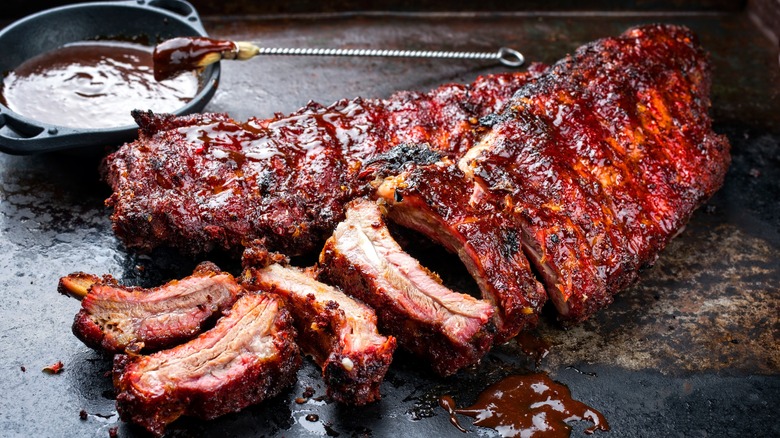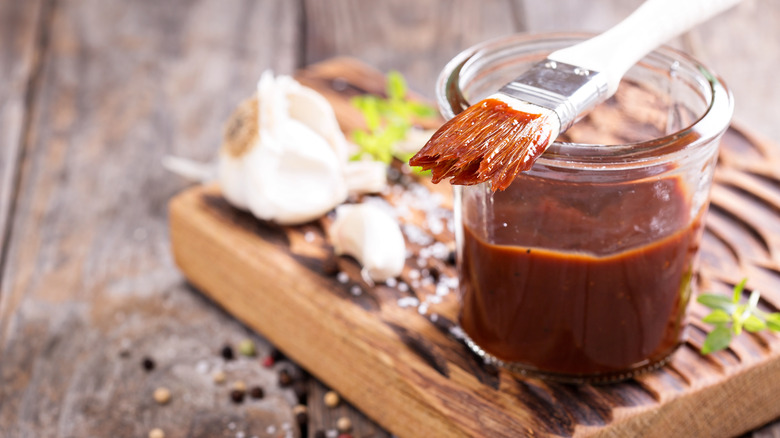If You Often Burn Roasted Foods, Your Marinade Might Be To Blame
The only prerequisite to not burning food is to simply not leave it in the oven for too long, right? Yet if cauliflower scorches up after only 15 minutes and your salmon filets pack it up within 10 minutes, you may need to go back to the drawing board. If your food consistently burns rather than roasting, the problem could be your marinade.
A good marinade strikes the balance between savory, sweet, and tangy. However, too much of one flavor profile can cause premature burning. An excessive amount of sugar isn't just bad for the teeth, but it'll make your food burn quickly. Sugar has the tendency to caramelize in the oven, giving food a crispy, sweet coating. But too much of it and the exterior quickly goes from caramelized to overly charred while the inside has hardly cooked.
When making a marinade, limit the amount of sugar you mix in. This isn't limited to just the crystallized kind — ingredients like honey, syrup, molasses, or vinegar with added sugars can also cause food to burn. Wanting to prevent burning doesn't mean you need to avoid sugar altogether. Saving the honey balsamic glaze for the last few minutes of cooking gives you the sweetness you're after without any of the burning.
These common marinade ingredients can also cause burning
Sugar isn't the only ingredient that's prone to crisping up too quickly in the oven. Oil tends to heat quickly in the oven, causing burnt spots on the surface of your food. If you've ever rubbed your roast chicken down with too much olive oil, you'll know it can often cook the skin much faster than the inside heats up. Although it's a beloved choice of fat for roasting, olive oil has a low smoke point, so it's not the best choice for marinades. Instead, spring for something like safflower or peanut oil.
Extra ingredients like herbs and aromatics are also known to incinerate in the heat of the oven. Whether dried or fresh, a cluster of herbs creates burnt patches around the skin of meat, fish, and vegetables. Roast your food at a lower heat and if you can, opt for the powdered forms of herbs instead of dried or fresh ones.
Roasting garlic also has the potential to go south quickly. Instead of adding minced garlic or crushed cloves to your food, make an herb and garlic compound butter with clarified butter. The clarified kind has a much higher smoke point than the original fat, allowing it to withstand high temperatures when roasted.

